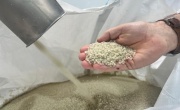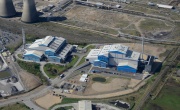Lords investigate economic benefits of waste

Image: Copyright House of Lords/Roger Harris
The House of Lords Science and Technology Committee will next Tuesday (12 November) to launch an investigation into the ‘potential economic benefit of waste’.
The committee is exploring the potential to create a ‘multi-million pound economy from waste, using by-products from agriculture, industry and households’. It added that it wanted to carry out an investigation into the issue of waste and bioeconomy because it:
- wanted to explore in greater detail the ability of current technology in the UK to exploit waste’s potential to create goods, fuels and chemicals;
- wanted to establish if waste could contribute to a burgeoning ‘green economy’ in the UK;
- wanted to investigate the potential for the UK to be competitive within the Europe and internationally;
- felt it was timely to examine whether the government had a joined-up strategic approach to funding, policy and regulation in this area.
According to the House of Lords, the scope of this inquiry will be largely limited to organic waste and waste gases produced by agriculture, industry and households.
The inquiry is pertinent as it comes just days after the Department for Environment, Food and Rural Affairs (Defra) announced that from April 2014, it will be ‘stepping back’ from taking forward new policy work in several areas of waste policy, including that of anaerobic digestion and food waste.
However, the House of Lords has said that the timing of the investigation is not political, as it has been ‘in the diary’ for the last few months.
Inquiry witnesses
As part of the inquiry proceedings, various members of the waste and bioeconomy industries will be asked about the different kinds of waste being used as raw materials (feedstocks), what the environmental impact of this might be, and how the feedstocks can be ‘transformed into something of value’.
The first evidence session will start at 10.40am on Tuesday and will hear from Dr Jeremy Tomkinson, CEO of the National Non-Food Crops Centre, and Dr Ben Allen and Dr Bettina Kretschmer, Senior Policy Analysts at the Institute for European Environmental Policy.
The House of Lords says they will be asking these witnesses a range of questions, including:
- what different types of wastes are available and whether they can be ‘easily’ used as a feedstock;
- what the potential impact is of using waste as a feedstock in a bioeconomy;
- how well positioned the UK is to exploit this particular use of waste; and
- what the economic and environmental costs are of disposing of waste.
An hour later, the house will hear from Professor Greg Tucker, Professor of Plant Biochemistry at the University of Nottingham; Dr Graham Hillier, Director of Strategy and Futures at the Centre for Process Innovation; and Dr Will Barton, Head of Manufacturing at the Technology Strategy Board (TSB).
They will be asked about areas such as:
- whether there is research underway to enable a wider range of feedstocks to be used;
- what a ‘major breakthrough’ might represent;
- how strong the UK research base is in this area;
- whether it is possible to quantify the economic and environmental impacts of using waste as a feedstock; and
- how close to commercialisation this technology is.
The following week (Tuesday, 19 November), the committee will hear from industry representatives on 'the state of UK technology and how it is enabling the transformation of waste into both low-value and high-value products'.
In two sessions, the committee will first take a look at the process of anaerobic digestion, and what its potential and its limitations are, and will then hear how technology can 'lead to higher value products being generated from waste'.
Speaking of the inquiry Dr Tomkinson said: “Waste is not only a challenge but also an opportunity; new technologies increasingly allow the conversion of what is problem for society into valuable energy, fuels and chemicals.
“The House of Lords review creates a timely opportunity to take evidence and examine how the UK can maximise the benefits of using waste as resource.
“The UK has the research and technology base to exploit the opportunity but guidelines and possibly regulations will be needed to ensure that technology, supply chains and markets are allowed to develop.”
The committee expects to publish its report on its findings in ‘early 2014’.
Read more about the House of Lords Science and Technology Committee.





